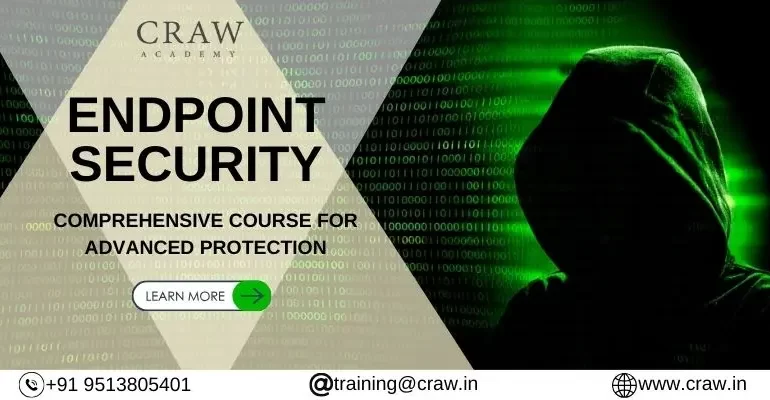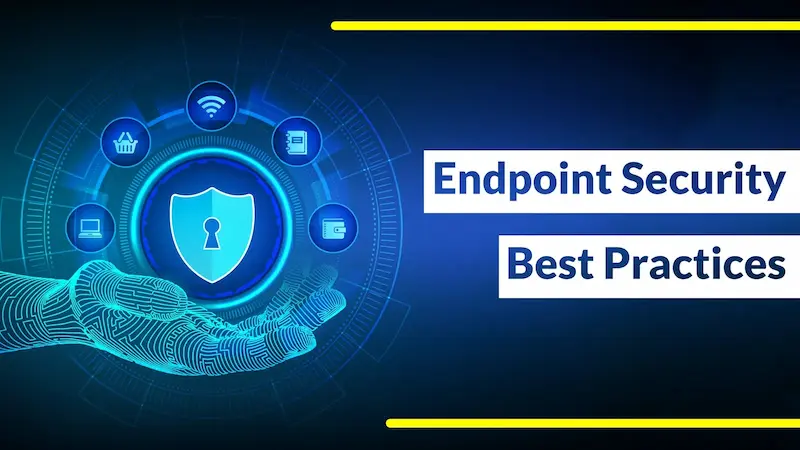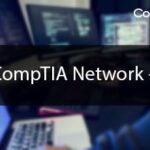Master Endpoint Security: Comprehensive Course for Advanced Protection

Master Endpoint Security: Comprehensive Course for Advanced Protection
If you want to master endpoint security, this article will be beneficial for you to start your journey in understanding the concept from a point of view, which is endpoint security. You will be able to find amusing information about how EndPoint Security helps professionals deal with cybersecurity issues that occur due to online data breaches. What are we waiting for? Let’s get straight into the topic!
Introduction to Master Endpoint Security
Endpoint security refers to the protection of individual devices (endpoints) such as computers, laptops, and mobile devices within a network. It involves implementing measures like antivirus software, firewalls, and encryption to safeguard these endpoints from cyber threats, ensuring a comprehensive defense against malware, data breaches, and unauthorized access. Effectively managing and securing endpoints is crucial in maintaining overall network security.
What will you learn in the Endpoint Security Specialist course?
If you join the EndPoint Security Course in Delhi by contacting Craw Security, you will be able to get your hands-on labs: Applying Your Knowledge, which will support you in nurturing your knowledge & skills by practicing them on virtual machines. Moreover, you will learn about the following concepts:
- Implementing Internet Security Anti-Virus
- Two-Factor Authentication Implementation
- Mobile Device Management For Industry
- Data Loss Prevention Overview & Implementation
- Security Information and Event Management (SIEM)
- APT- Attack
- MITRE Framework
- EDR
- MDR
- Next-Generation Firewall
- Unified Threat Management
- Physical Security
- ISO 27001 Lead Auditor Guidelines
Understanding the Threat Landscape
Endpoint security threats come in many different forms, such as ransomware, malware, phishing scams, and zero-day exploits. Endpoints present hazards, including data breaches, illegal access, and service disruptions, because they are weak areas where cyber threats can enter a system.
Cybercriminals’ ever-changing strategies call for flexible security solutions, which is why threat information, frequent updates, and user awareness are essential for efficiently reducing endpoint security risks.
Why should you take the Endpoint Security Specialist course?
It’s imperative to enroll in an Endpoint Security Specialist course for several reasons:
- Specialized Knowledge: The course offers an in-depth understanding of endpoint security, including cutting-edge methods and resources to shield specific machines from constantly changing online dangers.
- Career Advancement: Developing your skill set as an endpoint security specialist will help you become more marketable in the cybersecurity industry and possibly lead to new employment options.
- Organizational Security: Gaining knowledge of endpoint security enables you to make a substantial contribution to the overall security plan of your company, assisting in the defense against cyberattacks and data breaches.
- Current Threat Landscape: By keeping you informed on the most recent developments and threats in endpoint security, the course makes sure you are prepared to take preventative action in the event of new threats.
- Industry Recognition: Upon successful completion of an Endpoint Security Specialist course, you may be able to obtain industry-recognized certifications, which will validate your skills and increase your credibility with peers and employers.
Who should take the Endpoint Security Specialist course?
This course, Endpoint Security Specialist, is excellent for:
- Cybersecurity Professionals: Those who are already employed in the cybersecurity industry and wish to focus on defending endpoints against cutting-edge attacks.
- IT Administrators: Experts in charge of overseeing and protecting an organization’s IT infrastructure, including its endpoints.
- Network Security Analysts: Those in charge of keeping an eye on and safeguarding network activity, since endpoint security is essential to overall network security.
- System Administrators: Those in charge of safeguarding and maintaining a company’s workstations, servers, and individual devices.
- Security Consultants: Experts who offer businesses security consulting services with an emphasis on endpoints to enhance their overall security posture.
- IT Managers: Those in charge of IT operations, since they must be knowledgeable about endpoint security to make wise choices about the cybersecurity plan for the company.
- Compliance Officers: Those in charge of making sure regulations are followed since endpoint security measures are frequently essential to fulfilling requirements for data security and privacy.
- Anyone Interested in Cybersecurity Careers: Those who want to pursue a career in cybersecurity with a focus on endpoint security
Essential Endpoint Security Tools and Techniques
Tools and methods for endpoint security that are essential include:
- Antivirus Software: Offers instantaneous defense against viruses, spyware, and other harmful software.
- Firewalls: Keeps an eye on and regulates all incoming and outgoing network traffic to guard against cyber threats and stop illegal access.
- Endpoint Detection and Response (EDR): Provides sophisticated threat detection and response tools for locating and resolving security events on specific devices.
- Encryption: Protects sensitive data against unwanted access in the event of a breach by transforming it into a coded format.
- Patch Management: Makes certain that software and operating systems are updated with the newest security patches to fix vulnerabilities.
- Mobile Device Management (MDM): Regulates and safeguards mobile devices that connect to the network, enforcing regulations and blocking unwanted access.
- Multi-Factor Authentication (MFA): Requires users to present several forms of identity to access endpoints, adding a degree of protection.
- Security Awareness Training: Instruct people on phishing attempts, possible hazards, and effective practices to improve their overall security posture.
- Application Whitelisting/ Blacklisting: This limits the apps that can be run on endpoints and stops dangerous software from being executed.
- Behavioral Analysis: Monitors endpoint behavior to enable proactive threat detection by looking for odd trends that could point to a security problem.

Advanced Defensive Strategies
In endpoint security, advanced defensive techniques entail complex actions to proactively identify, address, and neutralize advanced threats. Some key strategies include:
- Endpoint Detection and Response (EDR)
Enables real-time threat hunting and incident response by using advanced analytics to identify and address suspicious activity.
- Behavioral Analytics
Keeps an eye on endpoint activity, searching for departures from the usual that could signal insider threats or sophisticated assaults.
- Machine Learning and AI
Enhances the capacity to recognize and stop novel and unidentified malware by using artificial intelligence to evaluate enormous datasets and spot changing threats.
- Threat Intelligence Integration
Allows for proactive security by integrating external threat information feeds to stay up-to-date on the newest attack vectors, strategies, and methods.
- Isolation and Containment
Reduces the effect of a security incident by containing and isolating infected endpoints to stop threats from moving laterally throughout the network.
- Deception Technology
Uses fictitious resources, such as data and endpoints, to entice attackers and identify them early in the attack lifecycle.
- Fileless Malware Protection
Avoids using conventional file-based detection techniques in favor of concentrating on the detection and prevention of malware that runs in memory.
- Zero Trust Security Model
Assumes that dangers could be found both inside and outside of the network, necessitating ongoing verification and authentication for each user and device gaining access to resources.
- Endpoint Privilege Management
Restricts user and application privileges on endpoints to stop unwanted access and lessen the effect of a hack.
- Threat Hunting
Actively scans the network for indications of hidden hazards, utilizing both human and technological know-how to locate and eliminate possible threats.
- Continuous Monitoring and Incident Response Planning
Ensures a prompt and efficient response to security problems by putting in place a strong incident response plan and continuously checking endpoints for indications of compromise.
Encryption and Data Protection
Data protection and encryption are closely related ideas, with encryption acting as a key technique to provide strong data protection. Here’s how they are interconnected:
- Confidentiality: One essential technique for protecting the privacy of sensitive data is encryption. Unauthorized parties are prevented from understanding or accessing the original data by utilizing encryption algorithms and keys to transform plaintext data into a jumbled, unintelligible state (ciphertext).
This guarantees that data is protected even if it is intercepted or viewed without authority.
- Data Integrity: Although the main purpose of encryption is to maintain confidentiality, it also tangentially supports data integrity. Unauthorized changes to encrypted data are easily detected since the changed information would prevent decryption from working.
This makes it possible to guarantee that data won’t change while it’s being processed, transferred, or stored.
- Regulatory Compliance: Numerous data protection laws, like HIPAA and GDPR, place a strong emphasis on using encryption to safeguard sensitive data.
Organizations must frequently employ encryption techniques to secure sensitive and personal data to comply with these rules, indicating their commitment to data protection.
- Data at Rest and in Transit: Data that is in transit (during communication between devices or over networks) and at rest (stored on devices or servers) is both subject to encryption.
By using a holistic strategy, the danger of illegal access or interception is reduced and continuous security is ensured throughout the data lifetime.
- Mitigation of Data Breaches: Encrypted data presents a serious obstacle to attackers in the case of a security breach or illegal access.
The impact of a potential data breach is reduced since the intercepted or stolen data stays unintelligible in the absence of encryption keys.
- Securing Multi-Cloud Environments: Data security in a variety of settings depends on encryption, which is becoming more and more important as enterprises use cloud services.
Even with intricate cloud infrastructures, end-to-end encryption and appropriate key management can preserve control and security over sensitive data.
Network Security Integration
To provide a unified and effective defense against cyber threats, network security integration entails matching and integrating endpoint security measures with more comprehensive network security methods. Key aspects of network security integration include:
- Unified Threat Management (UTM): Combines many security features, including VPN, intrusion detection/prevention, firewall, and antivirus, into a single solution to improve overall security and manage operations more easily.
- Security Information and Event Management (SIEM): Gathers and examines log data from several network and endpoint sources to pinpoint security events, link relevant data, and offer a consolidated picture of the security environment.
- Network Access Control (NAC): Makes ensuring that, before allowing access, only compliant and authorized devices can access the network by implementing endpoint security evaluations.
- Virtual Private Networks (VPNs): Protects data in transit and secures remote connections by encrypting communication between endpoints and the network.
- Identity and Access Management (IAM): Maintains user identities and access rights, integrating with endpoint and network security measures to impose uniform regulations.
- Intrusion Detection and Prevention Systems (IDPS): Keeps an eye out for indications of malicious behavior in network and endpoint traffic and can quickly prevent or neutralize threats.
- Network Segmentation: Divides the network into separate sections to stop threats from spreading to important systems by limiting their lateral mobility.
- Incident Response Coordination: Creates channels of communication and cooperation between endpoint and network security teams to enable a coordinated reaction to security events.
- Cloud Security Integration: Enables the extension of security measures to cloud environments, guaranteeing uniform asset protection across on-premises and cloud-based systems.
- Continuous Monitoring: Use ongoing network and endpoint activity monitoring to quickly identify and address security incidents.
- Threat Intelligence Sharing: Makes it easier for network and endpoint security systems to share threat intelligence, improving both their combined situational awareness and threat detection capabilities.
Regulatory Compliance and Endpoint Security
For enterprises, endpoint security procedures are shaped and directed, in large part, by regulatory compliance. Fulfilling regulatory requirements enables organizations to preserve sensitive information, uphold individual privacy rights, and comply with the law. Some key aspects of regulatory compliance and endpoint security include:
- Data Protection Regulations: Organizations must have strong endpoint security measures in place to comply with data protection legislation, such as the General Data Protection Regulation (GDPR) and the Health Insurance Portability and Accountability Act (HIPAA), to secure sensitive and personal data.
- Endpoint Encryption: Encryption is required by many rules to safeguard data on endpoints both in transit and at rest, lowering the possibility of illegal access or data breaches.
- Access Controls and Authentication: Strong access controls and authentication methods on endpoints are frequently mandated by regulations to guarantee that only authorized users can access sensitive data.
- Auditing and Logging: To track user activity, identify security events, and support compliance audits, it may be necessary to install comprehensive auditing and logging procedures on endpoints to comply with compliance standards.
- Patch Management: Many rules mandate that endpoints be kept up to date with the most recent security updates to fix vulnerabilities and improve overall security posture.
- Incident Response Planning: To ensure that companies can effectively respond to and mitigate security incidents on endpoints, regulatory compliance frequently necessitates the development and testing of incident response plans.
- Security Awareness Training: Several laws place a strong emphasis on training staff members on security risks and recommended practices, which helps foster an organizational security culture.
- Documentation and Reporting: Organizations are frequently mandated by compliance frameworks to keep thorough records of their endpoint security protocols and to notify regulatory bodies of any security events as soon as possible.
- Vendor Management: To maintain compliance, organizations might have to evaluate and verify the security procedures of outside suppliers offering endpoint security solutions.
- Periodic Security Audits: It is usually necessary to conduct regular security audits and assessments of endpoint security controls to prove continuous compliance and pinpoint areas in need of improvement.

The Future of Endpoint Security
Artificial intelligence and machine learning will probably be used more frequently in India’s endpoint security future for sophisticated threat identification. Cloud-based security solutions will be integrated more frequently, providing flexibility and scalability.
The importance of safeguarding IoT devices and guaranteeing regulatory compliance will increase as India’s digital transformation progresses. To improve the nation’s overall cybersecurity posture across all industries, endpoint security awareness and education will be essential.
To effectively combat growing threats, cooperation between the government, corporations, and cybersecurity professionals will be crucial.
Conclusion
If you want to learn more about cybersecurity’s concept of “EndPoint Security,” you can get in contact with Craw Security which is offering a specially designed course for learning EndPoint Security, which is the Endpoint Security Course in Delhi.
This course will deliver the fundamental knowledge of EndPoint Security to IT Professionals who want to enhance their knowledge and skills in cybersecurity for more secure online conversations. Moreover, you will get the chance to test your skills in the virtual machines. What are you waiting for? Contact, Now!
Frequently Asked Questions
About Master Endpoint Security: Comprehensive Course for Advanced Protection
- What is endpoint security?
Endpoint security is the defense against the cybersecurity risks of particular devices, or “endpoints,” such as PCs and mobile phones.
It entails putting in place safeguards against malware, data breaches, and unauthorized access, such as firewalls, encryption, and antivirus software.
- How will I benefit from learning about a career path?
Learning a career path offers several benefits:
- Structured Learning Journey,
- Relevance to Industry Demands,
- Skill Mastery,
- Focused Professional development and
- Career advancement opportunities
- Will I get a certificate after completing the career path?
Yes, if you get in contact with Craw Security, you will be able to get a certificate after the completion of the “Endpoint Security Course in Delhi,” which is a specially customized training & certification program. What are you waiting for? Contact, Now!
- Can I enroll in multiple courses in a learning path at the same time?
Indeed, the platform or organization offering the courses will determine whether or not you can enroll in more than one course at a time within a learning path.
While some platforms provide simultaneous enrollment, others could require students to move through the learning route in order.
- What is EDR in cyber security?
Endpoint Detection and Response is a cybersecurity system that offers real-time threat detection and incident response capabilities by monitoring and reacting to sophisticated attacks and questionable activity on specific devices within a network.
Beyond standard antivirus software, EDR improves overall security by providing in-depth insight and analysis of endpoint actions.
- What is the difference between endpoint security and antivirus?
While antivirus software specializes in identifying and eliminating dangerous software (malware) from endpoints, endpoint security is a more general notion that encompasses other methods of protecting individual devices, such as firewalls and encryption. A subcategory of endpoint security is antivirus software.
- Is endpoint security a firewall?
Firewalls and endpoint security are two different but related ideas. While a firewall primarily regulates incoming and outgoing network traffic to prevent unwanted access and secure the network perimeter, endpoint security covers a wider variety of measures, such as antivirus, encryption, and device control.
- Is VPN an endpoint security?
Although it is frequently used in conjunction with endpoint security measures, a VPN (Virtual Private Network) is not normally thought of as an endpoint security solution.
A VPN improves overall security by encrypting communication between endpoints and the network, enabling safe and private data transmission, whereas endpoint security concentrates on safeguarding specific devices.
















